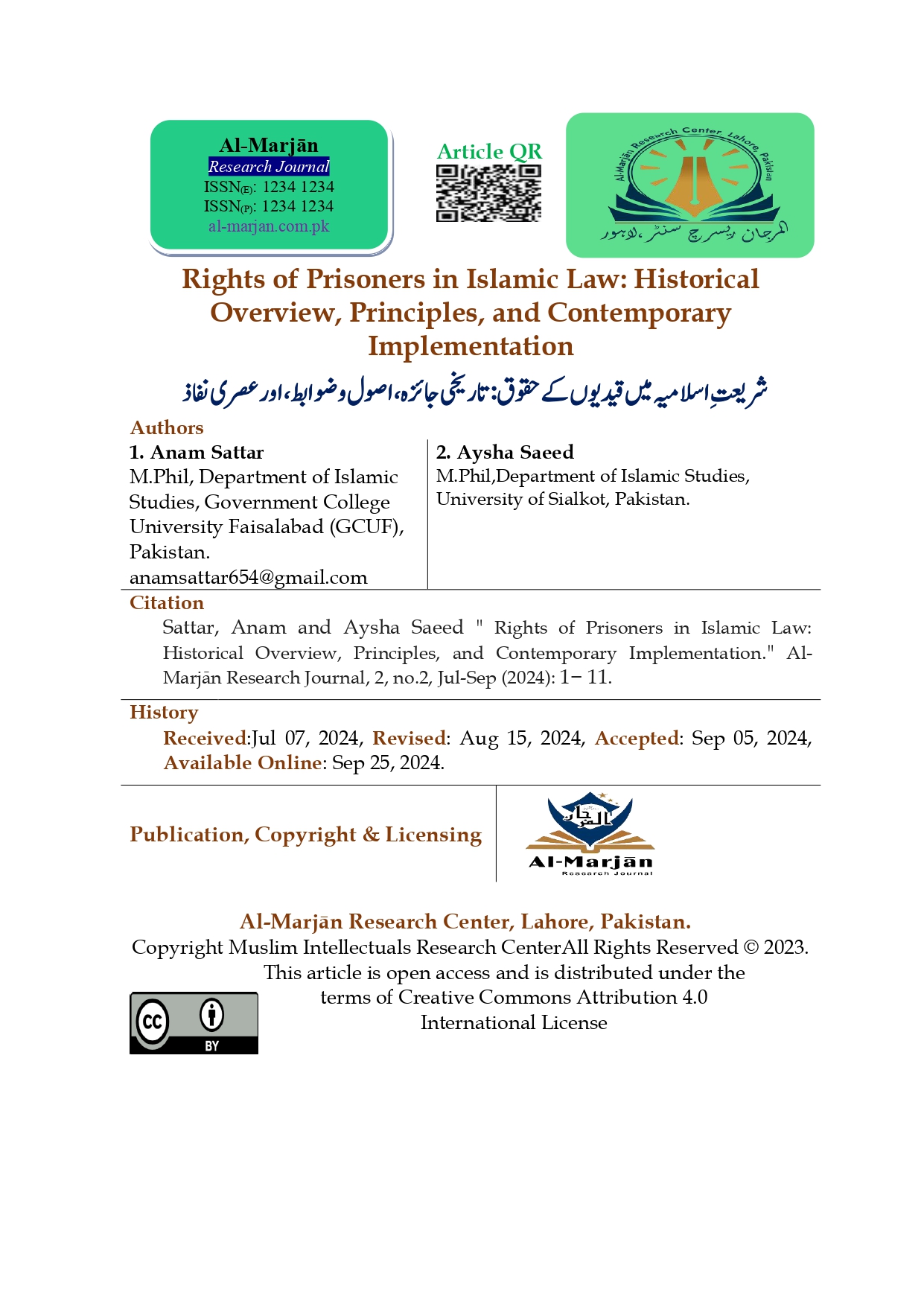Rights of Prisoners in Islamic Law: Historical Overview, Principles, and Contemporary Implementation
شریعتِ اسلامیہ میں قیدیوں کے حقوق: تاریخی جائزہ، اصول و ضوابط، اور عصری نفاذ
Keywords:
Prisoners' rights, Islamic law, humane treatment, rehabilitation, Islamic state.Abstract
The concept of prisoners' rights in Islamic law is rooted in compassion, fairness, and justice. Before the advent of Islam, prisoners faced inhumane treatment, including physical torture, forced labor, and deprivation of basic necessities. The rights of prisoners were not recognized, and they were treated worse than animals. With the emergence of Islam, a revolutionary change took place as the religion formulated explicit rights for prisoners and offered them numerous ways to regain their freedom. Islamic law not only ensures that prisoners are treated humanely during detention but also emphasizes rehabilitation and support after release, providing them the opportunity to reintegrate into society. The Prophet Muhammad (PBUH) demonstrated exemplary treatment of captives, setting standards that surpass many modern laws. It is the duty of an Islamic state to fulfill the rights of detainees, ensuring that they receive humane treatment and all essential amenities as ordained by Islam. This research delves into the historical background of prisoners' rights, exploring their development from pre-Islamic times to the Islamic injunctions that transformed their conditions. It further analyzes the key principles outlined in the Qur'an and Hadith that guide the treatment of prisoners, highlighting the responsibilities of an Islamic state in providing justice and compassion to all detainees, irrespective of their faith. The study also discusses the modern-day application of these principles, emphasizing how these timeless teachings can contribute to upholding the dignity of prisoners in the contemporary era.
Downloads





































